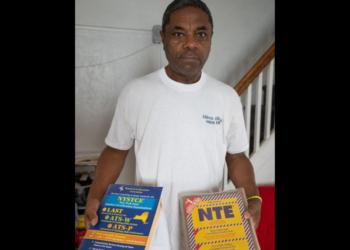The FBI has identified six “tech-savvy” juveniles suspected of making bomb threats to more than a dozen historically black colleges and universities last week.
While no arrests have been made, the bureau is investigating the incidents as hate crimes, a law enforcement official said. The six persons of interest were “tech-savvy” juveniles across the country who used various methods to disguise the premise of the threats, NBC News reported.
As News Onyx previously reported, at least 14 HBCUs were forced to lockdown and postpone classes on Tuesday after receiving bomb threats, police said.
The suspected hate crimes occurred on the first day of Black History Month. However, Howard University in Washington, D.C., received the bomb threat on Monday at around 4:30 a.m., according to a security alert sent from the university.
“We’ve had these challenges before,” Howard University President Wayne Frederick said Tuesday. But “since I’ve been here (as a student) in 1988, it has not been this widespread and also, I think, this overt.”
The probe into the bomb threats “is of the highest priority for the Bureau and involves more than 20 FBI field offices across the country,” the FBI said in a statement.
“Although at this time no explosive devices have been found at any of the locations, the FBI takes all threats with the utmost seriousness, and we are committed to thoroughly and aggressively investigating these threats,” the agency said.
The law enforcement agency did not provide further information due to the ongoing investigation.
Both students and professors have expressed their concerns regarding the bomb threats to HBCU campuses across the country.
“I’m uneasy,” said Calvert White, 22, a student at Jackson State University. “HBCUs have a long history of physical threats just because of our existence. I think that the threats aren’t individual or coincidental — that it’s a clear attack on Black students who choose to go to Black schools.”
“Many of our students in the HBCUs, they are first-generation college students. And they are there to advance their education and to create opportunity — not only for themselves but for their families,” said Sabrina Taylor, an assistant professor at Coppin State University.
Saigan Boyd, a 19-year-old Spelman student, said she was notified of the bomb threat at around 5:30 a.m. in an email. “It was very disturbing … It made me feel as though that I am not safe,” she said.
“I’m just ultimately tired of dealing with this level of unsolicited hatred,” she said. “I’m just tired of being terrorized like how my grandparents were, Boyd said.









